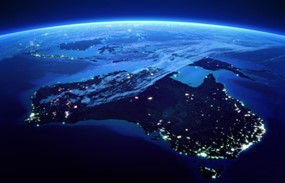Electrical engineering researchers from Monash University will use Federal Government funding to investigate and develop a tool to predict and manage instability in Australia’s national energy grid.
Implementation of the tool, suitable for use by the Australian Energy Market Operator (AEMO) and Transmission Network Service Providers (TNSPs), is expected to further boost connection to the national grid of renewable energy sources including solar and wind-generated electricity.
Half a million dollars of funding for the Monash engineering research was announced this week by the Australian Renewable Energy Agency (ARENA) as part of a $1.3 million project to investigate the nature and origin of periodic variations in the national energy grid.
The research will be powered by the Monash Grid Innovation Hub, which is led by Associate Professor Behrooz Bahrani of the Monash Faculty of Engineering.
“Enhancing the stability and resilience of the national energy grid is crucial as we accelerate our transition to renewable energy,” said Associate Professor Bahrani.
“With the support of ARENA, this groundbreaking project aims to address current energy flow challenges and pave the way for a robust, reliable and renewable future for our energy infrastructure.”
Grid instability across parts of Victoria and New South Wales led AEMO to significantly curtail the contribution of five solar energy farms for eight months during 2019-2020 while it worked to identify and address the causes.
By reducing instability, the new project aims to support the growth of renewable energy generation, optimise production from existing wind and solar operators, and encourage investment in additional renewable sources.
ARENA CEO Darren Miller said these risks need to be addressed to avoid long term electricity supply issues.
“To manage the risk of instability in an increasingly inverter-based grid, it is necessary to build reliable and efficient tools that can identify root causes early,” Mr Miller said.
“These tools should also be useful to explore the suitability of solutions for a grid increasingly dominated by renewable power.
“The researchers at Monash are working on the best solutions to improve stability and we’re confident the outcomes will help ramp up new renewable energy generation and storage projects.”
ARENA has previously funded Monash University to that promote more stable operation in weak grid conditions.
“Monash is committed to doing all we can to facilitate the seamless integration of renewables into our grid, and we’re optimistic that this collaboration will again come up with innovative solutions,” said Associate Professor Bahrani.








